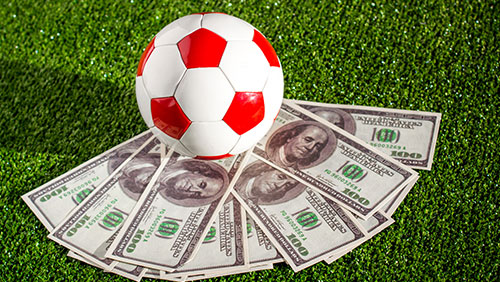The advent of online gaming as a sportsbetting franchise is one that isn’t new and, in many ways, has always been there. From virtual gaming to pre-game betting, much of the money that has been staked on sporting events over the course of the last century has been done so in a world of imagined sporting acts, before the first horse has broken the tape or the first football has been kicked.
 In modern society, Esports bettors were, for years, having to push for sportsbetting on their particular favourite game to be acceptable within the traditional hubs of sportsbetting. They don’t get bigger in that sense than Las Vegas, which has been something of a ghost town recently rather than the neon-lit gamblers’ paradise that it has been known for over many years.
In modern society, Esports bettors were, for years, having to push for sportsbetting on their particular favourite game to be acceptable within the traditional hubs of sportsbetting. They don’t get bigger in that sense than Las Vegas, which has been something of a ghost town recently rather than the neon-lit gamblers’ paradise that it has been known for over many years.
Last week’s manic demand that casinos need to reopen because the COVID-19 restrictions are ‘killing’ the industry by the Las Vegas Mayor Carolyn Goodman sparked much discussion and comes at a time when many Americans are making similar demands for the country to reopen, despite rapidly rising numbers of the population Stateside being infected with Coronavirus and almost a quarter of the current death toll falling victim to the disease in the U.S.A.
While casinos look destined to remain closed for the foreseeable future, throwing the idea of the World Series of Poker and other forthcoming festivals into extreme doubt at the very least, Las Vegas has approved four new Esports games for sportsbetting. Overwatch League, League of Legends European Championship and the North America League of Legends Championship will all be able to be wagered on in Nevada over forthcoming weeks, and as a recent look at Esports betting in the Washington Post surmises, the Nevada Gaming Commission can often “act as a barometer for much of the sportsbetting world”.
Vegas and sportsbetting go together like rubber and the road. They have always been partners in crime since Vegas was founded in 1905, right through to today, where the City of Las Vegas is the 28th-most populated city in the United States of America.
With traditional sports falling away one by one as Coronavirus hit, Esports took over. Sporting stars such as England players have taken up FIFA 20 tournaments instead of playing on the real football pitches up and down the country. Elsewhere, footballers from around the world raised funds for victims of the Coronavirus by picking up the PlayStation controller rather than their football boots.
Action on Esports has always been smaller due to the betting company putting up the odds having fears over the regulatory side of Esports. The game has always been feared that it is manipulated easier than physical sports in terms of betting patterns, rigging games or game integrity in general. You might read about a six-figure bet on more traditional sports like soccer, american football or basketball. In Esports, $1,000 would be a big bet that is likely to raise eyebrows.
It’s a slow build, but what feels like an inevitable one.
This week sees the 9th anniversary of Black Friday, the day that the Obama administration ended online poker in the United States, something that has only come back state-by-state under President Trump, which is itself a surprise.
Esports has traditionally grown as a sportsbetting prospect with baby steps, inching back into a race for profits that it is already several laps behind in. However, with Las Vegas finally starting to open up on Esports events that can be wagered on, perhaps a giant leap forward is something in Esports near future, fueled by a mutual trust between the gambler and the house, and perhaps a larger sample size of well-run games with flawless integrity and genuine competition.
As always, bettor participation will determine just how big that leap ends up being.